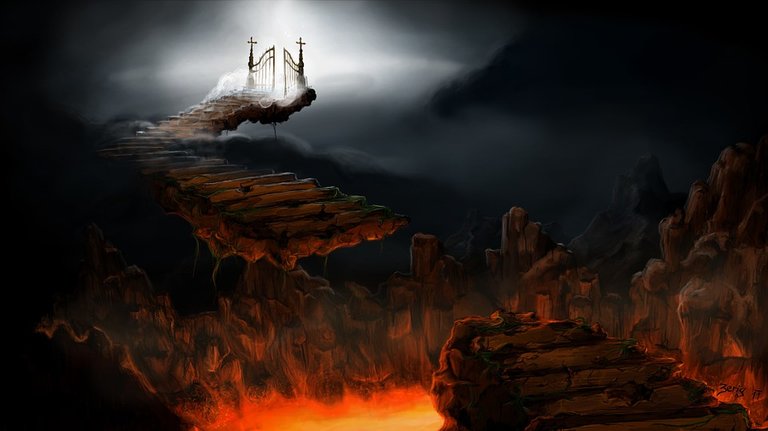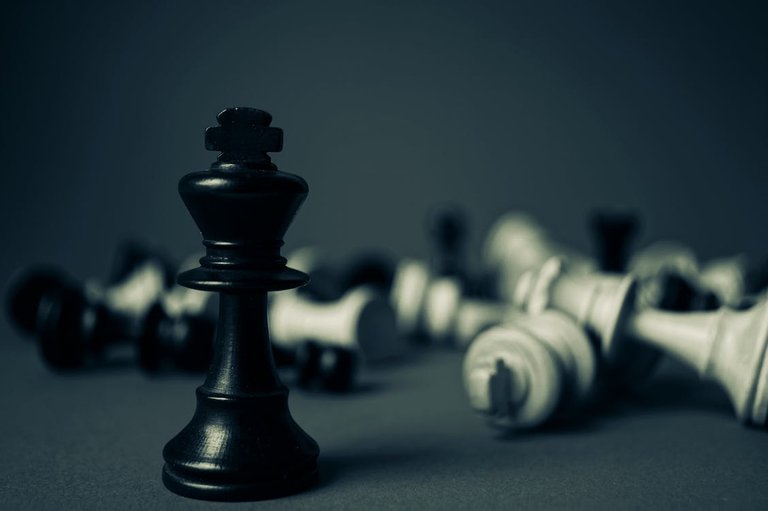I grew up going to church thrice a week.
At one point during my mid-teens, my mother served as the church drama director and secretary, while my father took the position of worship leader. Because I went to a private Christian high school, I was surrounded at all times by people who identified as Christian. Both the church and school labeled themselves as "non-denominational”. This was a more approachable designation than "evangelical", but they were largely similar. For this reason, up until my mid to late teens, I never knew many outside of the Christian circle, and I was rarely exposed to other ideas. Any idea which had its origins outside of the permissible realm realm was labeled as the work of the devil. These ideas were so heavily overshadowed by the threat of eternal punishment that I was terrified to contemplate them.

For all its terror-inducing mythologies and presumptions,
my childhood religion provided a certain degree of fortitude. It gave me a guidepost in a tumultuous world. It gave me a set of rituals to follow for self-preservation, renewal, and reverence. At times, it filled me with joy and a sense of community. Long conversations with the more philosophically inclined minds taught me to think about the meaning of things (even if the scope of this was limited to Biblical interpretations). I remember hearing God’s voice in the trees and knowing, without doubt, that I was being invited to explore the mystery of the divine.Then I got bitter. I got tired of being afraid of non-Christians. At one point, I was best friends with a church official’s son; I remember my parents getting blamed for my “bad influence” on him (albeit the influence was mutual). Their accusation was un-Christlike. I saw plenty of un-Christlike behavior within church, and I lived in a constant state of fear. Like many kids, I began to rebel – doing drugs, failing school, and so on. These are natural reactions of independent minds to excessive restraint.
What’s more, I discovered philosophical validity in other world views. Thanks to my brother, I read a translation of the Corpus Hermeticum when I was 19. By this time I was already full of bitterness and depression, and I was exhibiting self-destructive behaviors. I saw truth in this new text; unfortunately, I used this as a weapon against my religion, destroying the idea of religious integrity with it. Instead of using the new teachings as a guide, I simply used them as proof that my old religion was tainted, and that gave me an excuse to behave in any manner I desired.

God was dead, and I had killed him!

With the departure of my religion, I embraced a kind of aimless wandering and abandoned all self-discipline and self-respect. Spirituality was now open to interpretation, but I had no solid footing; the Postmodern subjectivity taught by Aleister Crowley and the like did not help. We live in a world now where very little is thought to be real; where our thoughts are believed to be in charge of the Universe; where we’re just a bunch of nonsense colliding with each other with no particular order. The idea of truth existing independently of our minds has been lost, and that's actually terrifying.
When I realized this, thanks to the work of Robert Schmidt and Ellen Black, I ceased spinning in a subjective void. Truth does exist, and it exists independently of your mind (and the concepts you create to interpret events).
Religious truth is a funny thing that I have come to revere again. Religions seem largely motivated by oracular revelation, and they are largely maintained by ritual and tradition. If you do not forget your roots, that tradition is invaluable. The rules that you bind yourself to are no longer arbitrary. They are self-imposed restraints that you are using to be more than a beast. They are also only beneficial if they are rooted in truth. Yes, a plurality of systems exist, and each system has its own set of rules. If you understand how those rules are tied to eternal truths, then it makes no difference what system you're binding yourself to. As far as determining truth, I believe the Greeks were particularly good at this.
There are multiple paths to the truth, but there is truth and there is falsehood.
So here I sit, admitting that there's a place for the quiet solitude of a Catholic cathedral. Having a set of rituals, prayers, or meditations is healthy. We share a fundamental human nature, despite our plethora of differences in personality. And despite its bloody shortcomings, religious thought has largely united and inspired people; it is the institution that has always bloodied the waters with its perversion of the truth.
But get to the root of what the Teachers were talking about and you may hear a voice in the breeze again.

Peace, Abundance, and Liberty Network (PALnet) Discord Channel. It's a completely public and open space to all members of the Steemit community who voluntarily choose to be there.Congratulations! This post has been upvoted from the communal account, @minnowsupport, by voice-of from the Minnow Support Project. It's a witness project run by aggroed, ausbitbank, teamsteem, theprophet0, someguy123, neoxian, followbtcnews, and netuoso. The goal is to help Steemit grow by supporting Minnows. Please find us at the
If you would like to delegate to the Minnow Support Project you can do so by clicking on the following links: 50SP, 100SP, 250SP, 500SP, 1000SP, 5000SP.
Be sure to leave at least 50SP undelegated on your account.